Study at Top Universities for the Electrical & Electronics Engineering Engineering Degree in Malaysia
Electronics engineering deals with devices and systems that use small amounts of electrical energy to analyse, transmit and

- A specialty within electrical engineering and closely linked to broadcast engineering, telecommunications engineering involves the design of specialized computer and electronics equipment for use in a telecommunications network or infrastructure. These include cellular telephone networks, broadband systems and other cutting-edge technologies.
store information. Transmission of these electronic signals forms the basis of communications and the information technology industry, and includes the field of microelectronics and the use of silicon chip technology.
Do you have a mobile phone or a computer? Wireless communication and the Internet are just a few areas electrical engineering has helped flourish, by developing better phones, more powerful computers, and high-speed modems. As we enter the 21st century, the technology that surrounds us will continue to expand and electrical engineers are leading the way.
Various systems for communication between people both nearby and on the other side of the world have been developed and are constantly being improved and refined. This communication takes place using satellite, telephone, optical fibres and computer systems.
These systems are of vital importance in everyday communication, defence, transport, civil aviation & medical equipment such as the bionic ear, pacemakers and life support systems.
Electrical engineering is concerned with the basic forms of energy that run our world. Whether it's gas, hydro, turbine, fuel cell, solar, geothermal, or wind energy, electrical engineers deal with distributing these energies from their sources to our homes, factories, offices, hospitals, and schools.
Electrical engineering is concerned with research, design, development, manufacture, installation, operation, maintenance and management of equipment, plant and systems within the electrical, electronic, communication and computer systems areas.
These activities can apply to electricity generation, transmission, distribution, electrical installations in buildings and on industrial sites, electrical equipment manufacture, instrumentation and control systems applications in industry, communications networks, electronic plant and equipment, and also the integration and control of computer systems.
Using math and science, electrical engineers come up with economical solutions for technical problems. They use scientific advancements to meet consumer and societal needs through commercial applications. Many electrical engineers develop new products. In the process they must consider several factors from specifying precise functional requirements, to designing and testing components, to evaluating the final design for safety, reliability, cost and effectiveness.
Beyond design and development some electrical engineers work in maintenance, testing or production. They may determine the
cause of malfunctions, test products for quality or supervise production in factories. At the supervisory level, electrical engineers are usually in charge of major components or entire projects.
Electrical engineers use computers extensively on the job. They control efficiency, monitor quality, simulate and test system operations and produce and analyze designs. Also adding new principles to the design process is nanotechnology.
Electrical engineers design, develop, test and supervise electrical equipments manufacturing process. They may work with a variety of electrical equipment including electric motors, communications systems, lighting and wiring in buildings, radar and navigation systems, machinery controls and power generation, transmission and control devices used by electric utilities. They may also design electrical systems for automobiles and aircraft.
Electronics and electrical engineers are often confused and the term can be used interchangeably. However, electrical engineers usually focus on the generation and supply of power while electronics engineers traditionally have worked on applying electricity principles to control systems or signal processing. Specialization areas for electrical engineers include electrical equipment

- A specialty within electrical engineering and closely linked to broadcast engineering, telecommunications engineering involves the design of specialized computer and electronics equipment for use in a telecommunications network or infrastructure. These include cellular telephone networks, broadband systems and other cutting-edge technologies.
manufacturing and power systems engineering.
Electronics engineering is a very diverse field and it is currently undergoing expansion as new applications are found for
electronic equipment. This has led to the development of two relatively new fields of engineering - software engineering and mechatronics.
- Software engineers design and modify complex software systems and computer hardware. Mechatronics Engineering combines the disciplines of mechanical and electrical engineering. It is associated with the use of digital computers to control machines and processes. It is also used to create diverse products such as substitutes for human sensors and organs and computer controlled machine tools.
- Mechatronics Engineering is a rapidly developing field and as the world becomes steadily more technologically advanced it will be of increasing importance. Electronic engineers work for companies and government departments that design, construct, and test electronic devices (including computers) or that are involved with their installation.
Increase in Job Demand in Malaysia For Electrical & Electronics Engineers

- I whatsapped EduSpiral to ask about the best engineering college in Penang. I was also considering a cheaper college but EduSpiral shared that good facilities, personal attention from lecturers & an English-speaking environment is important for a successful future. So, I decided to join KDU College Penang.
Richard Ong, Electrical & Electronic Engineering at KDU College Penang
The NKEA Communications Content & Infrastructure (CCI) The CCI sector spans a wide ecosystem, from content generation to networks, services and devices. In order to achieve a high-income economy, the continued development of the communications content and infrastructure sector is therefore fundamental.
It would be critical to ensure smart deployment of next generation infrastructure throughout the country and capitalize on opportunity to develop Telecommunications as an enabler to other sectors. Capital expenditure is estimated to amount to RM 51.5 billion over the 10 year period.
In a report conducted by IPSOS Business Consulting in 2012 on the E&E Sector Study on the Supply-Demand of Talent in Malaysia, it is found that there is a shortage of Electrical & Electronic Engineers in Malaysia.
The E&E sector is an important contributor to Malaysia’s economy as it is one of the 12 National Key Economic Areas (NKEA) in the country’s Economic Transformation Programme (ETP). There are 1,900 active E&E companies which provide employment to over 350,000 people.
In line with ETP projections, Malaysia’s E&E sector growth is expected to be robust in the coming years.
This growth will require a steady supply of skilled talent, both in numbers and in the appropriate skills-sets, to meet the present and future needs of the sector
This gap is due to several factors that includes competition from other sectors and economies for the same talent pool, as well as the un-employability of graduates that reduces the pool of addressable talent
The sector also faces a situation of skills gaps, where adequately trained and skilled talent, both at entry and experienced levels are lacking. These are mainly in the areas of R&D and to some extent Engineering Support.
The report found that Fresh Graduates or Entry-level Talent Not Industry-Ready (lacks required skill-sets) therefore it is important for students to choose a university that is able to provide the necessary training and possess the experience to teach.
- University’s curriculum do not meet specific industry needs
- Graduates lack relevant industry exposure
- Graduates do not have the required soft skills demanded by the industry
- Curriculum / students do not fully embrace the importance of soft skills.
- It is also reported in the Star newspaper that Communication Skills is the no. 1 soft skill employers look for and that graduates with good command of the English language obtain a 25% higher salary and increased opportunities for promotion.
The IPSOS report identified eight key talent shortage areas in the E&E field and the areas in demand for E&E fresh graduates are found in 5 areas which are:
- IC Design Engineers
- Embedded System / Firmware Engineer
- Software Engineer
- Radio Frequency (RF) Engineers
- Product Design R&D Engineers
Where do Electrical & Electronic Engineers work in Malaysia?
People who specialise as electronics engineers may work in such industries as telecommunications, broadcasting, aviation, defence, robotics, computers, medical engineering or meteorology. Many electronics engineers are now finding more opportunities in entertainment, transport and telecommunications industries.
Data communications, mobile radio and the broader entertainment industry all require the input of electronics engineers. An example of one growth area is the use of satellites and cable systems in Pay Television.
Electrical power engineers work for companies and government departments that are involved with providing and using electrical power.
Electrical engineers have made remarkable contributions to our world. They helped invent the computer, DSL, cellular phones, microchips, and solar panels–to name just a few examples.
DVD players, cellular phones, radio, television, computers, airplanes, space vehicles, cars, motorcycles, home appliances, life-
saving medical equipment, computer games, and Martian battles fought with joysticks represent a mere sampling of the now familiar facets of life made possible with the input of electrical engineers.
The transport sector is employing more electronics engineers as the vehicles and the systems controlling them become more automated.
Electronics engineers in the field of communications may be responsible for the operation of satellite television transmission, or for the smooth running of telephone switching exchanges.
Often these systems or operations are monitored using complicated panels of instruments. It is the responsibility of the electronics engineer to find and correct faults quickly and to ensure the smooth working of the operation.
Power Generation & Distribution Engineering provides electricity to our homes and to industry. It is concerned with planning, developing, testing, installing, using and maintaining power plants or stations that provide electric power.
It also deals with the transmission of that power to where it is needed - cities, towns, railway lines, large businesses and industry. Power engineers also conduct research on developing alternative power sources such as solar and wind energy.
Most electronic design is based on the use of computer aided simulation. Computer systems engineers may work in the private sector with computer manufacturing and service companies, business consulting firms, the information systems divisions of companies and a wide range of government activities.
Ten key industry sectors employ electrical engineers, computer engineers, and computer scientists:
- Aerospace
- Bioengineering/Biomedical Engineering
- Computers
- Education and Research
- Energy and Electrical Energy
- Manufacturing
- Semiconductors
- Services and Other Professions
- Telecommunications
- Transportation and Automotive
Top Universities in Malaysia for Electrical & Electronic Engineering degree courses
E&E is a very important part of our everyday life. The study of Electrical & Electronic Engineering can involve large amounts of
power such as power and control engineering, large devices like power stations and electric vehicles or small amounts of power like computers, communications and information engineering and small devices including MP3 players, iPads and cell phones.
Students can consider studying Electrical & Electronic Engineering at one of the pioneer universities, UCSI University, or at Asia Pacific University, the best university for computing programmes. Software Engineering is closely related to Electrical & Electronic Engineering. Other universities that can be considered are KDU University College and Nilai University.
The Engineering Degrees of these universities are accredited by the Board of Engineers Malaysia (BEM) which is a signatory to the Washington Accord. This accreditation ensures that Engineering Graduates will have the following benefits in countries who are signatories of the Washington Accord:
- Opportunities to register as a Graduate Engineer with Board of Engineers Malaysia (BEM) or the relevant professional bodies in other countries who are signatories under the Washington Accord.
- Pathways to becoming a Professional or Chartered Engineer.
- Assurance that graduates are considered as having met international academic standards for engineering practice.
BEng. (Hons) Electrical and Electronic Engineering Degree at UCSI University
UCSI University is famous for its engineering courses and has offered the Electrical & Electronic Engineering course since
1992.
At UCSI University, the Electrical and Electronic Engineering programme covers a tremendous array of courses related to both fields, ranging from basic topics such as circuits, analogue and digital devices and systems, computing, machines, communications and digital networks to more specialised topics like filter design, control, instrumentation, power, signal processing, VLSI design, and microprocessors / microcontrollers, among others.
This well-established and broad-based engineering degree programme combines theoretical studies with practical applications and problem-solving skills in the realm of engineering.
The Electrical & Electronic Engineering course at UCSI University grooms students to be well-trained individuals and exposes them to hands-on sessions with software and hardware design tools, in line with industry needs.
To foster competitiveness among graduates, students are also required to undergo industrial training under UCSI University’s Co-operative Placement Training Scheme at the end of the 2nd and 3rd academic years. This training allows students to learn and familiarise themselves with the real-life working environment. Apart from that, students also undertake research and development projects in their final year of study.
Programme Details
The duration of the programme is 4 years.
The duration of the programme is 4 years.
In each year there are two long-semesters consisting of 14 weeks of instruction with 2 weeks of examinations, and one short-semester consisting of 7 weeks of instruction with 1 week of examinations. The long-semesters start in January and May, while the short-semester starts in September.
In the months of November & December students undergo industrial training under the Co-Operative Placement Scheme to learn and to familiarize themselves with real life working environment. In addition, students also undertake a research and development project in their final year.
The number of contact hours per courses per week depends on the credit and teaching methodology of each course. Each credit is approximately equivalent to 1 hour of class, or 2 hours of labs per week.
The teaching and learning strategies and assessment are designed depending on and according to the nature of subject or topic being taught or investigated.
The school of Engineering implements different methods and styles of teaching and learning and assessment to ensure the successful achievement of the learning outcomes of its programmes, that includes
- Ordinary classroom lectures
- Group tutorials
- Laboratory works
- Seminars and eforums
- Directed and self learning
- Invited guest lectures
- Industrial visits
Year 1 Electrical and Electronic Engineering Degree subjects at UCSI University
- Calculus & Analytical Geometry II
- Circuit Theory I *
- Digital Electronics I *
- Analogue Electronic I *
- Mathematical Methods for Engineers I
- Technical Communication
- Electromagnetic Theory I *
- Electronic Laboratory 1A
- Electronic Laboratory 1B
Year 2 Electrical and Electronic Engineering Degree subjects at UCSI University
- Advanced Circuit Theory &TL *
- Engineering Design *
- Mathematical Methods for Engineers II
- Electronic Manufacturing Industry *
- Engineering Softwares & Applications *
- Electrical Power *
- Computing for Engineers *
- Co-operative Placement 2
- Analogue Electronics II *
- Digital Electronics II *
- Electronic Laboratory 2A
- Electronic Laboratory 2B
Year 3 Electrical and Electronic Engineering Degree subjects at UCSI University
- Communication Theory *
- Numerical Analysis
- Instrumentation & Measurement *
- Data Communication &Networks *
- Microprocessor Systems *
- Electrical Machines *
- Environmental Engineering and Abatement Processes"
- Control Systems *
- Engineering & Management & Economics
- Engineers in Society
- Energy Conversion & High Voltage Power Transmission*
- Electronic Laboratory 3A
- Electrical Laboratory 3B
- Electrical Laboratory 3C
Year 4 Electrical and Electronic Engineering Degree subjects at UCSI University
- Digital Signal processing *
- Digital Systems & HDLs *
- Electronic Circuit Design
- Power Electronics *
- Final Year Project A
- Embedded Systems Design *
- Power Systems *
- Final Year Project B
- Co-operative Placement 4
- Power System Protection
- Electronic Laboratory 4A
- Electrical Laboratory 4B
Elective :
- Electromagnetic Theory II
- Introduction to Production and manufacturing
- VLSI Design
- Technopreneurship
Electrical & Electronic Engineering Degree Courses at Asia Pacific University (APU)
Asia Pacific University offers two degrees in Electrical & Electronic Engineering accredited by the Board of Engineers Malaysia (BEM) and MQA:
- B. Eng (Hons) in Electrical & Electronic Engineering
- B. Eng (Hons) in Electrical & Electronic Engineering with Information Technology
B. Eng (Hons) in Electrical & Electronic Engineering course at Asia Pacific University (APU)
The engineering programmes offered by the School of Engineering at Asia Pacific University (APU) are current in terms of technology and are market driven, thus having great employment opportunities.
They provide an education based on a theoretical, experimental and ethical foundation enhanced by opportunities for participation in research, internships and interdisciplinary programme.
Year 1 Electrical & Electronic Engineering Subjects at Asia Pacific University (APU)
The degree subjects at Asia Pacific University (APU) provide an appropriate platform for an Engineering Professional to
understand the basic principles of engineering in the areas of:
- Circuit Analysis
- Engineering Materials
- Engineering Statics & Dynamics
- Engineering Design
In addition, a thorough grounding in principles of IT and management are provided by the Programming and Management modules. Modules such as Engineering Mathematics and Introduction to Management provide the basic academic skills required to meet the demands of employers.
Important and relevant skills for managing activities and for your own independent learning are also introduced.
Common Modules
- Analysis of Circuits
- Engineering Materials
- Introduction to Management
- Engineering Statics & Dynamics
- Engineering Mathematics 1
- Introduction to C Programming
- Engineering Mathematics 2
- Instrumentation & Measurement
- Engineering Design
Year 2 Electrical & Electronic Engineering Subjects at Asia Pacific University (APU)
Here, you start specialising in modules that develop the necessary underlying knowledge and skills in Electrical and Electronics
Engineering. Further, in-depth Electrical and Electronic skills are developed here with modules such as Electromagnetic Field Theory, Engineering Software & Applications, Analogue Electronics, Digital Electronics, Signals & Linear Systems, Electrical Machines 1& 2 and Electrical Power Utilisation.
Engineering Mathematics is provided for the better understanding of the engineering modules.
Common Modules
- Analogue Electronics
- Engineering Mathematics 3
- Electromagnetic Field Theory
- Digital Electronics
- Engineering Software & Applications
- Signals & Linear Systems
Specialised Modules
- Electrical Machines 1
- Electrical Power Utilization
- Electrical Machines 2
Year 3 Electrical & Electronic Engineering Subjects at Asia Pacific University (APU)
Specialised knowledge and skills in the areas of Control Engineering, Communication Engineering Principles, Multimedia
Applications, Computer Architecture, Microprocessor Systems & Embedded Software, Digital Signal Processing, Numerical Methods & Statistics, Power Electronic & Drives, Power System Analysis and Generation, Transmission & Distribution of Electrical Power are a critical focus of this level.
There is further development of the ability to apply relevant engineering skills with strong critical thinking and analysis.
Independent learning continues in all modules.
Common Modules
- Control Engineering
- Communication Engineering Principles
- Multimedia Applications
- Computer Architecture
- Numerical Methods & Statistics
- Microprocessor Systems & Embedded Software
- Digital Signal Processing
Specialised Modules
- Power System Analysis
- Generation, Transmission & Distribution of Electrical Power
- Power Electronics & Drives
Internship
Industry placement with a suitable organisation for a minimum period of 12 weeks, after completing Year 3 and before the commencement of Year 4.
Industry placement with a suitable organisation for a minimum period of 12 weeks, after completing Year 3 and before the commencement of Year 4.
Year 4 Electrical & Electronic Engineering Subjects at Asia Pacific University (APU)
The final year Engineering subjects at Asia Pacific University (APU) provide the necessary industry application technological
skills which will become very useful for employment upon graduation.
These modules include, VLSI Design, Analogue Integrated Circuits & Systems, and High Voltage Engineering.
Your personal and professional development is enhanced by the module in Engineer in Society and Engineering Project Management.
You will enhance your technical capability and understand how to innovate, generate and manage the creation of new ideas.
The Project Phase I (Investigation) in Electrical and Electronics Engineering will enable students to take on R&D with commercialisation.
The Electrical and Electronics Engineering Project Phase II (Implementation) also develops the academic and practical aspects of your chosen areas of study and reinforces your independent learning skills.
This is where you will demonstrate higher level critical thinking, analysis and solutions development skills which will enhance your employability.
Common Modules
- Engineering Project Management
- Project Phase I (Investigation)
- Project Phase II (Implementation)
- Engineer in Society
Specialised Modules
- High Voltage Engineering
- VLSI Design
- Analogue Integrated Circuits & Systems
B. Eng (Hons) in Electrical & Electronic Engineering with Information Technology course at Asia Pacific University (APU)
An Electrical Engineer may be responsible for research, design, development, manufacturing and management of complex
hardware and software systems and reliable, cost effective devices, many involving the use of new information and computer intensive technologies. These include:
- Integrated electronic systems
- Renewable energy systems such as solar power, wind power, tidal power, vibration and etc
- Generation, transmission and distribution of electric power
- Instruments and applications in electrical and electronic systems
The subjects for Year 1 and Year 2 for the B. Eng (Hons) in Electrical & Electronic Engineering with Information Technology course at Asia Pacific University (APU) are the same with the B. Eng (Hons) in Electrical & Electronic Engineering.
Year 3 B. Eng (Hons) in Electrical & Electronic Engineering with Information Technology degree subjects at Asia Pacific University (APU)
Specialised knowledge and skills in the areas of Control Engineering, Communication Engineering Principles, Multimedia
Applications, Computer Architecture, Microprocessor Systems & Embedded Software, Digital Signal Processing, Numerical Methods & Statistics, Power Electronic & Drives, Power System Analysis and Generation, Transmission & Distribution of Electrical Power are a critical focus of this level. There is further development of the ability to apply relevant engineering skills with strong critical thinking and analysis.
Independent learning continues in all modules.
Common Modules
- Control Engineering
- Communication Engineering Principles
- Multimedia Applications
- Computer Architecture
- Numerical Methods & Statistics
- Microprocessor Systems & Embedded Software
- Digital Signal Processing
Specialised Modules
- Data Structures & Algorithms
- Elective No. 1
Internship
Industry placement with a suitable organisation for a minimum period of 12 weeks, after completing Year 3 and before the commencement of Year 4.
Industry placement with a suitable organisation for a minimum period of 12 weeks, after completing Year 3 and before the commencement of Year 4.
Year 4 B. Eng (Hons) in Electrical & Electronic Engineering with Information Technology degree subjects at Asia Pacific University (APU)
The final year Engineering modules provide the necessary industry application technological skills which will become very useful
for employment upon graduation. These modules include, VLSI Design, Analogue Integrated Circuits & Systems, and High Voltage Engineering. Your personal and professional development is enhanced by the module in Engineer in Society and Engineering Project Management.
You will enhance your technical capability and understand how to innovate, generate and manage the creation of new ideas.
The Project Phase I (Investigation) in Electrical and Electronics Engineering will enable students to take on R&D with commercialisation. The Electrical and Electronics Engineering Project Phase II (Implementation) also develops the academic and practical aspects of your chosen areas of study and reinforces your independent learning skills.
This is where you will demonstrate higher level critical thinking, analysis and solutions development skills which will enhance your employability.
Common Modules
- Engineering Project Management
- Project Phase I (Investigation)
- Project Phase II (Implementation)
- Group Design Project
- Engineer in Society
Specialised Modules
- Analogue Integrated Circuits & Systems
- Elective No. 2
Electives
- Computer Systems Security
- Distributed Computer System
- HCI and Usability
- Cloud Infrastructure & Services
Bachelor of Engineering (Hons) in Electrical and Electronic Engineering at KDU University College
KDU University College's distinctive degree in electrical and electronic engineering was designed with the flexibility to meet both
the present and future needs of the industry in Malaysia.
With the goal of ensuring a holistic learning experience, KDU's programme allows you to cultivate the skills, knowledge, and the ability to develop engineering applications which are required for a wide range of professional engineering careers and expected of leaders in business, engineering, industry and even in R & D.
If you are keen on green energy and the latest smart-grid technology, and envision a career with power utility companies, then you may major in Electrical Power and Renewable Energy in your fourth year.
If your interest lies in advanced digital system design and embedded systems, and if you seek employment with companies like INTEL, Altera and Motorola, opt for Electronic Engineering. Communication Engineering would be your ideal major which focuses on radio frequency and optical communication.
Year 1 Electrical and Electronic Engineering Subjects at KDU University College
- Analogue Electronics
- Circuit Theory
- Computer Programming for Engineers
- Digital Electronics
- Engineering CAD
- Engineering Mathematics I & II
- Introduction to Information Technology
- Introduction to Communication Systems
- Physics for Engineers
Year 2 Electrical and Electronic Engineering Subjects at KDU University College
- Circuit Theory & Analysis
- Corporate Social Responsibility
- Electromagnetic Field Theory & Applications
- Engineering Ethics & Practice
- Engineering Mathematics III
- Engineering Probability & Statistics
- Object Oriented Programming
- Principles of Electric Machines
- Process Control & Instrumentation
- Principles of Microcontroller Systems
- Research & Experimental Methods
Year 3 Electrical and Electronic Engineering Subjects at KDU University College
- Advanced Electronics
- Capstone Project
- Computer Networks
- Digital Communication
- Electric Machines & Drive Systems
- Entrepreneurship
- Industrial Practice & Safety
- Microcontroller System Design
- Modern Control Systems
- Power Electronics
- Power System Analysis
- Signals and Systems
- Industrial Training
Year 4 Electrical and Electronic Engineering Subjects at KDU University College
- Final Year Project I & II
Choose one from three Technical Specialisation
1. Electrical Power & Renewable Energy
- Advanced Power System Analysis
- Electrical Energy Utilisation
- Energy Storage
- Power Station & High Voltage Engineering
- Power System Protection
- Renewable Energy Systems
- Sustainable Power Generation
- Transmission & Distribution
2. Electronic Engineering
- Advanced Digital Design with HDL
- Digital Signal Processing
- Fault Diagnosis of Integrated Circuits
- Introduction to Opto-Electronic Devices
- MEMS Sensors and Actuators
- Mixed Signals Circuit Design
- Real Time Embedded Systems
- VLSI
3. Communication Engineering
- Digital Signal Processing
- Internet Protocol for Mobile Network
- Introduction to Opto-Electronic Devices
- Mixed Signals Circuit Design
- Optical Communication
- Radio Communication System
- RF System Design
- Satellite Communication
Bachelor of Electrical and Electronics Engineering at Nilai University
Nilai University's engineering programmes feature licensed MATLAB, Simulink, Multisim, Autocad, SolidWorks, Ansys, CNC
Simulator and Emulator software to study the advances in the field of Electrical and Electronics, Mechanical, Mechatronics, and Automotive Engineering and to take up in-house projects.
Students will undergo training as part of the syllabus on Solidworks and Anysys software; the former will teach students how to create components with parametic methods and to create assemblies while the latter will impart knowledge on computer aided engineering analysis.
You are given the opportunity to take the Dale Carnegie & the Outward Bound courses at Nilai University which will help build up your communication skills.
The Bachelor of Electrical and Electronics Engineering degree programme at Nilai University prepares graduates for a professional career in the Electrical and Electronics field, specializing in the designing and operating of sophisticated devices, equipment, technology, services and systems.
This programme also offers a broad range of skills to ensure a holistic education, preparing the graduate to be a successful team player and engineer with good communication and soft skills.
The Electrical & Electronic Engineering degree course at Nilai University offers to the student in-depth fundamental knowledge of Electrical and Electronic Engineering via modules such as:
- Electrical Technology
- Fundamental of Communication Theory
- Fundamental of Digital Circuit
- Engineering Workshop
- Understanding Engineering
- Instrumentation and Process Control
- Control Systems
- Computer Organization and Architectures
- Electrical Power
- Electrical Machines and Drives
- High Voltage Engineering and Electrical Energy Utilization
- Advance Electronics
- Digital Electronics
- Power Electronics
- Microprocessor, and Advance Digital System
- Analog Communication
- Digital Communication
- Network Technologies
- Introduction to Network
- Applied Electromagnetism
Education For All Financial Aid at Nilai University
If your family income is RM4,000 or below, you are eligible for the Education For All Financial with terms and conditions at Nilai University. Students need only pay a non-refundable fee of RM650 and the rest of your fees will be cover under the PTPN Loan.
Any extra tuition fees not covered by the PTPN Loan is waived by Nilai University.
You must only apply for the diploma or degree programmes as the PTPN Loan does not cover Foundation courses so the EFA does not cover Foundation. The EFA is not applicable for the Diploma in Aircraft Maintenance as well.
To apply you must fill up the Application Form, the EFA Form, provide 1 certified copy of the SPM/STPM/UEC results and parents' 3 months salary slips, BE and J Forms.
EduSpiral Consultant Services- Your Personal Online Education Advisor
Established since 2009, EduSpiral Consultant Services helps provide information and counselling on courses and universities in Malaysia. EduSpiral Consultant Services also represents MDIS Singapore and Hong Kong Polytechnic University.
- EduSpiral Consultant Services represents the best colleges and universities in Malaysia offering a wide range of choices for students to choose from. These colleges and universities offer value for money in the quality of education and excellent facilities that you get.These universities and colleges are chosen by EduSpiral because they represent the best in their fields in Malaysia and affordable. EduSpiral provides in-depth information and counseling on their courses so that students are able to make the right choice.
If you are still not sure what to study, please contact us and we will send you a free EduSpiral Career Assessment Form.
Please contact us for more details.
- Whatsapp: +601111408838
- Wechat/Line: EduSpiral88
- Instagram: www.instagram.com/eduspiral
- Foursquare: www.foursquare.com/eduspiral
- Youtube: www.youtube.com/eduspiral
- Follow EduSpiral: www.twitter.com/eduspiral
- Be my friend: www.facebook.com/eduspiral1
- Like EduSpiral: www.facebook.com/eduspiralcs
- Message me: info@eduspiral.com
- Website: www.eduspiral.com
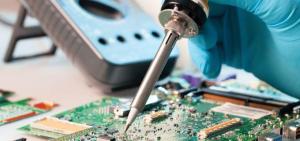
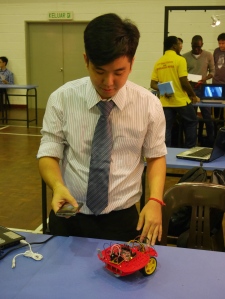
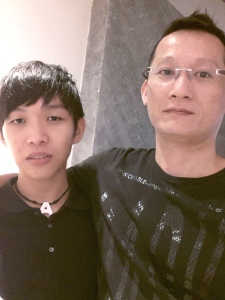
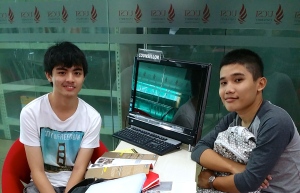
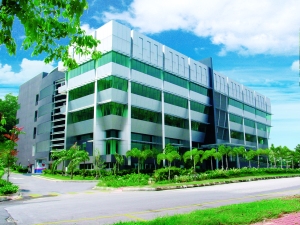
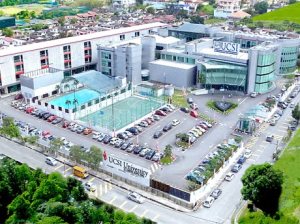
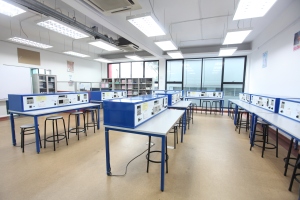

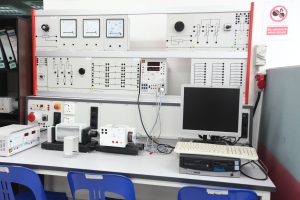
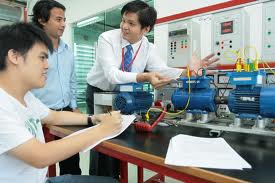

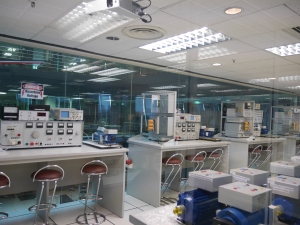
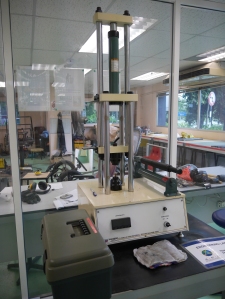
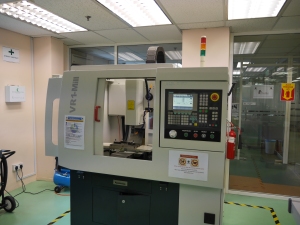
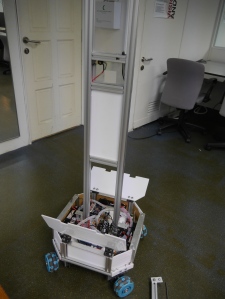

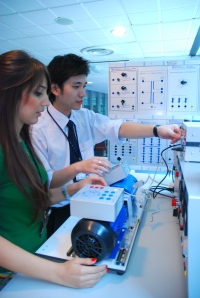
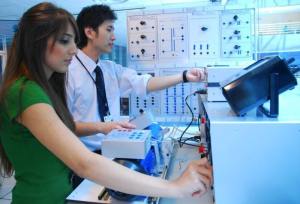
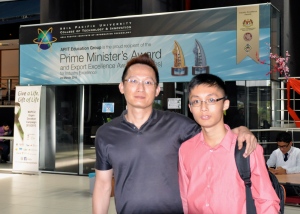

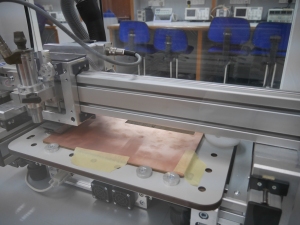
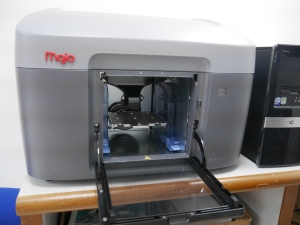
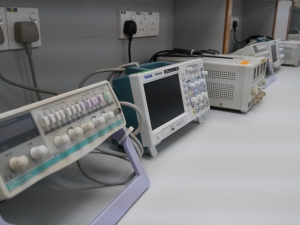

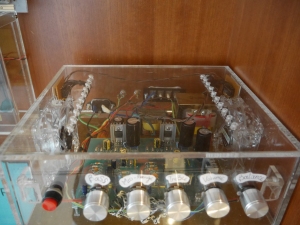

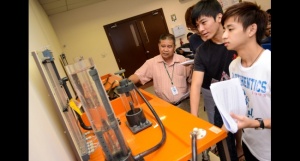


No comments:
Post a Comment
Please leave your comments and questions